Education
Up-to-date resources on educational programs, special education, and bullying in D.C., Maryland, and Northern Virginia.
Links to Sections
Key: Please note border around resorces orgainzed by state.
DC
Maryland
Virginia
General Educational Resources

Latin American Montessori Bilingual Public Charter School
202-726-6200
1375 Missouri Ave NW Washington DC 20011
LAMB offers a unique model that provides Bilingual (English and Spanish) Montessori Public Education to diverse, urban families in the nation’s capital. Since children must begin attending the school at three or four years old, LAMB is a community that embraces our active parent community and maintains a staff that is committed to children and promotes peace and equality for all.
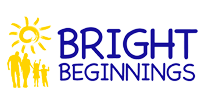
Bright Beginnings
202-842-9090
128 M St NW Washington DC 20001
Bright Beginnings is dedicated to meeting the immediate needs of children and families living in homeless environments by providing children with a safe, nurturing educational environment, preparing children to enter kindergarten ready to learn, and supporting homeless parents to stabilize their home lives and become self-sufficient.
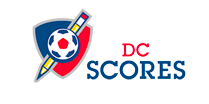
DC Scores
202-393-6999
1224 M St NW, Suite 200 Washington DC 20005
DC Scores inspires and promotes academic achievement, community involvement, and athleticism among Washington DC youth through soccer and creative afterschool activities.

Martha's Table
202-328-6608
2114 14th St NW Washington DC 20009
Works with community to increase access to a Healthy Start for DC children, Healthy Eating for DC families and Healthy Connections so DC youth and families can find jobs and be successful in life.

Hispanic Assoc of Colleges and Universities National Internship Program
202-467-0893
1 Dupont Circle, Suite 430 Washington, DC 20036
Our nation’s economic and social success rests on the level of skills and knowledge attained by Hispanics, now the nation’s largest minority population. Education, indisputably, is the key. HACU is committed to Hispanic success in education, from kindergarten through graduate school and into the work force of tomorrow. Everyone has a stake in HACU’s crucial goals: to promote the development of member colleges and universities; to improve access to and the quality of postsecondary educational opportunities for Hispanic students; and to meet the needs of business, industry, and government through the development and sharing of resources, information, and expertise.
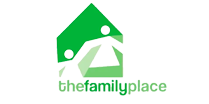
The Family Place
3309 16th St NW Washington DC 20010
The mission of The Family Place is to empower low-income families and to foster the optimal development of their young children through educational and support services. The Family Place achieves its mission by offering services in three program areas: Family Literacy, Family Wellness, and Family Stability.
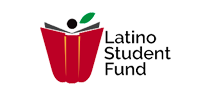
Latino Student Fund
202-244-3438
3480 Woodley Rd NW Washington DC 20016
The Latino Student Fund Scholarship Program was founded in 1994 by community leaders, educators, and parents who recognized the overwhelming need to combat school dropout rates in the Latino community. The Tutoring Program was founded in 1998 to provide supplemental academic support to at-risk and underprivileged Latino youth. The Listo and Listo Rapido college preparation courses for high school students were added to the list of program offerings in 2010. The LSF Access Program officially launched in the fall of 2011 and is continually modified and expanded to meet the changing needs of the Latino community.
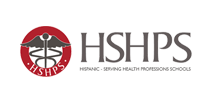
Hispanic Serving Health Professions Schools
202-290-1186
2639 Connecticut Ave NW
Washington DC 20008
HSHPS is a nonprofit member-based organization established in 1996 in response to the President’s Executive Order 12900, “Educational Excellence for Hispanic Americans” and HHS’s “Hispanic Agenda for Action: Improving Services to Hispanic Americans” initiative. By supplying essential academic and career development resources to students, faculty, and other health professionals, HSHPS addresses the mounting public health issues of providing quality and culturally competent healthcare to Hispanics living in the United States.
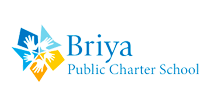
Briya Public Charter School
Provides education and services to hundreds of immigrant families in DC including English classes, workforce courses, and early childhood programming.

Achieving the Dream
240-450-0075
8403 Colesville Road, Suite 450 Silver Spring, MD 20910
Achieving the Dream is a national reform network dedicated to community college student success and completion; focused primarily on helping low-income students and students of color complete their education and obtain market-valued credentials.

Edu-Futuro
703-228-2560
2110 Washington Blvd Arlington, VA 22204
Edu-Futuro empowers under-resourced Latino and other immigrant youth through education, leadership development, and family engagement, to become the next generation of professionals who transform their communities.
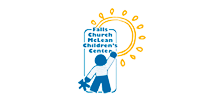
Falls Church-Mclean Children's Center
703-534-4907
Falls Church-McLean Children’s Center provides a comprehensive, high quality, early-childhood program designed to give all young children, regardless of their family’s economic resources, a strong foundation on which to build the rest of their lives.
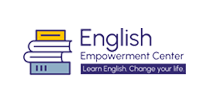
Literacy Council of Northern Virginia
703-237-0866
The mission of the Literacy Council of Northern Virginia is to teach adults the basic skills of reading, writing, speaking, and understanding English in order to empower them to participate more fully and confi`dently in their communities.
Enrollment Rights
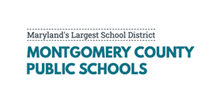
DC School Boundaries
Every child in D.C. and Maryland has the right to attend his or her in-boundary public school, regardless of immigration status. You can find a child’s DC in-boundary school online
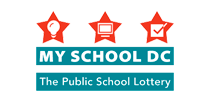
Prince George’s County
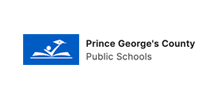
PGCPS
School Attendance
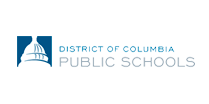
DC Enrollment
Compulsory attendance: age 5 up until 18th birthday. Child must be enrolled in school if they will be 5 years old on or before September 30.

Montgomery County
Compulsory attendance: age 5 up until 16th birthday.

Prince George’s County
Special Education
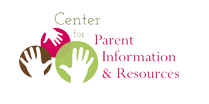
Spanish to English Resources
This Spanish/English resource has a step-by-step guide of the special education process

Early Intervention Agency: Strong Start
Ages 0-3
All states and the District of Columbia must identify, locate, and evaluate all children suspected of having a disability from birth to age 22 regardless of whether they attend a traditional public school.

Montgomery County Early Intervention Agency

PG County Early Intervention Agency
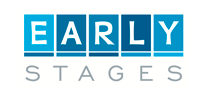
Ages 3-5
Early Stages is the D.C. Public School’s assessment center for children suspected of having a disability and who are over two years and eight months old, and under five years and ten months old.

Ages 3-5
Early Stages is part of the D.C. public school system, so after a child is evaluated, Early Stages will talk with the parent about a D.C. public school that would be appropriate. If a parent would rather send the child to a public charter school, the parent can give copies of the evaluations and education plan (IEP) from Early Stages to the child’s public charter school when the child enrolls.
How to refer to D.C.’s Early Stages: Call their office at 202-698-8037 or Email them at referral@earlystagesdc.org or click the button for an on-line form.

Ages 5-22
Public School System has continuing obligation to identify, locate, and evaluate.
If a medical provider suspects any child of having a disability, submit a written referral to a school administrator stating suspicion of disability and request for evaluations. Referral for evaluation can also be made by a parent or school personnel. can be made to a school administrator.
If a medical provider suspects a child’s special education supports to be insufficient, write a letter to school administrator and provide referral to advocacy organization.
Bullying
Bullying is an increasingly prevalent problem at all levels of schooling. Immigrant children, in particular the newly arrived, are more vulnerable to bullying. “Immigrant bullying” has been defined as “bullying that targets another’s immigrant status or family history of immigration in the form of taunts and slurs, derogatory references to the immigration process, physical aggression, social manipulation, or exclusion because of immigration status.”
1. Source: Scherr, T. G., & Larson, J. (2010). Bullying dynamics associated with race, ethnicity, and immigration status. In S. R. Jimerson, S. M. Swearer, & D. L. Espelage (Eds.).The Handbook of Bullying in Schools: An International Perspective. New York: Routledge.
To address bullying within school, parents should contact:

Office of the Ombudsman for Public Education
202-741-0886
The Office of the Ombudsman helps students and parents solve problems with the D.C. Public Schools and public charter schools. The Office offers conflict resolution services to parents, families, and students and is committed to resolving complaints in areas that affect student learning, including student discipline, special education, truancy, student enrollment, transportation, academic progress, and bullying.
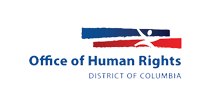
Bullying DC Gov
Bullying complaints can also be made directly to the Office of Human Rights (OHR). Contact information in this parent pamphlet. Or for a direct referral, contact Suzanne Greenfield, Director, Citywide Bullying Prevention Program (202)-727-0455.

Montgomery County, MD
The form is available in multiple languages and should be completed and given to the principal at the student victim’s school.

Prince George’s County, MD
The form is available in multiple languages and should be completed and given to the principal at the student victim’s school.

Anti Bullying in PG County
More information and resources on Anti-Bullying in PG County
Concerns & Complaints

Office of the Ombudsman for Public Education
The Office of the Ombudsman helps students and parents solve problems with the D.C. Public Schools and public charter schools. The Office offers conflict resolution services to parents, families, and students and is committed to resolving complaints in areas that affect student learning, including student discipline, special education, truancy, student enrollment, transportation, academic progress, and bullying.
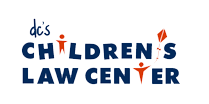
Children's Law Center Legal Help Line
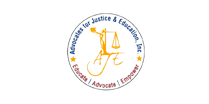
Advocates for Justice and Education
Advocacy and legal organization that seeks to empower families, youth, and the community to be effective advocates to ensure that children and youth, particularly those who have special needs, receive access to appropriate education and health services.

Montgomery County Office of the Ombudsman
301-279-3617
The Ombudsman is appointed by the Montgomery County Board of Education and is considered an independent or neutral party who seeks to resolve school-related problems as quickly and efficiently as possible, especially for those for which a formal resolution process does not exist. The Ombudsman has the authority to access all files, with your permission. All employees of the school system are directed to cooperate with the Ombudsman.

Prince George’s County Office of the Ombudsman
301-808-8315
The Ombudsman serves as an independent party that seeks to resolve school and school-system issues of concerns from students, parents, and the public. Anyone can contact the PGCPS Office of the Ombudsman to discuss or seek assistance in resolving a school or school-system problem, concern, or complaint by phone, in writing, or by email. Complaints can be submitted online

